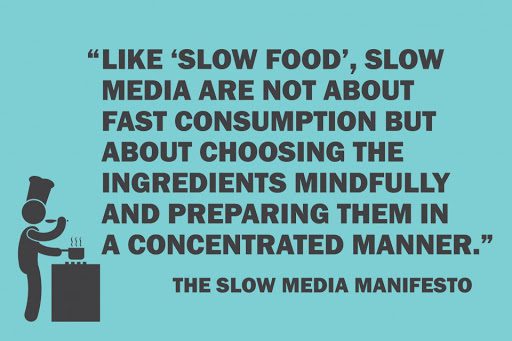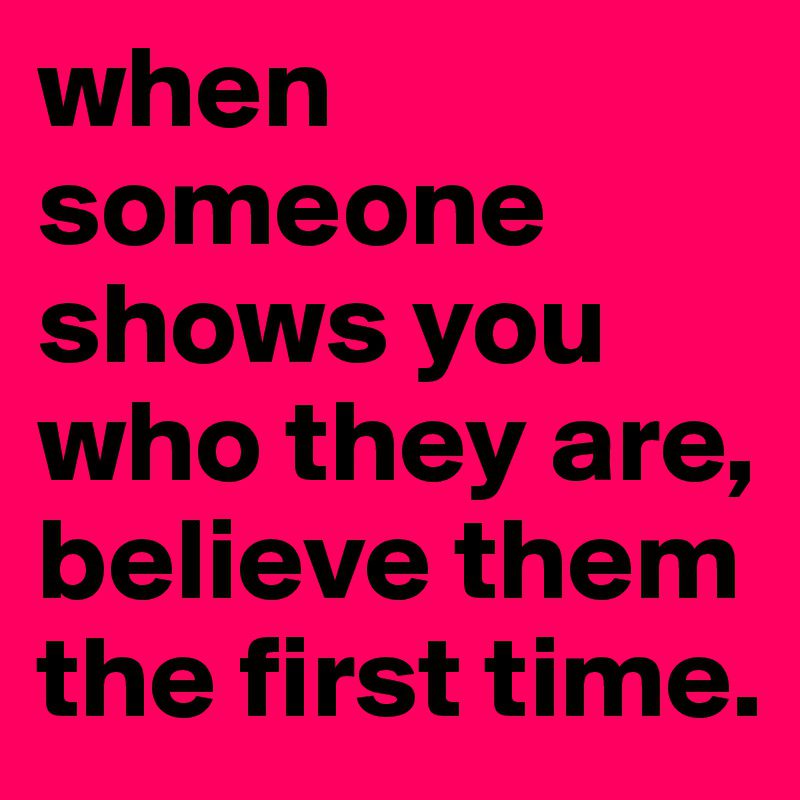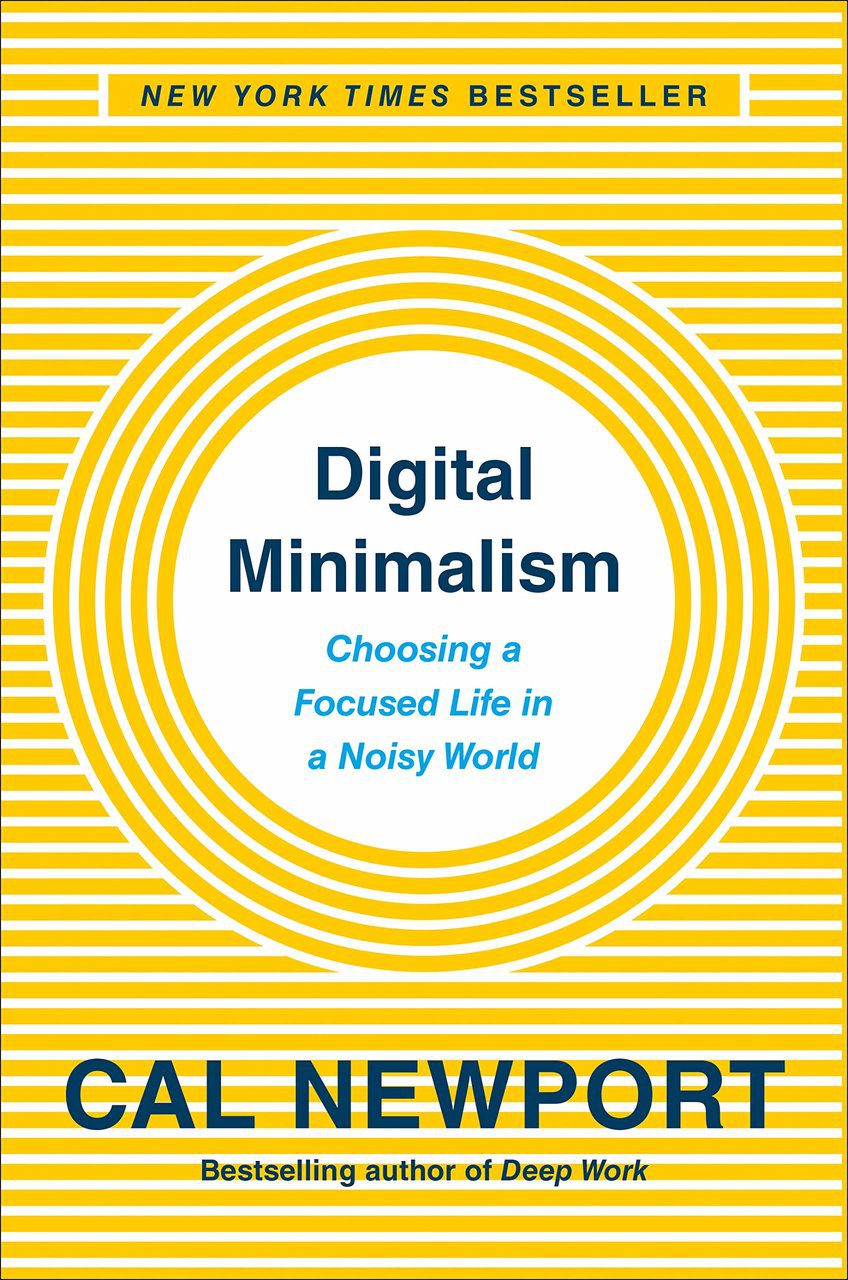I first got to know about the Slow Media Manifesto after reading “Digital Minimalism: Choosing a Focused Life in a Noisy World by Cal Newport. The Slow Media Manifesto argues that in an age in which the digital attention economy is shoveling more and more clickbait toward us and fragmenting our focus into emotionally charged shards, the right response is to become more mindful in our media consumption:
Early in 2010, a trio of Germans (Benedikt Köhler, Sabria David and Jörg Blumtritt) with backgrounds in sociology, technology, and market research posted online a document titled “Das Slow Media Manifest.” The English translation reads: “The Slow Media Manifesto.“
Slow Media is a movement focusing on the pace of media production and consumption in the digital age. It advocates for alternative ways of making and using media that are more intentional, more enjoyable, longer lasting, better researched/written/designed, more ethical, and of higher quality overall.
Slow Media developed in response to complex media formats and instant communication methods characteristic of digital culture, in which “high volumes of information are updated in real-time and are perpetually at your fingertips.




